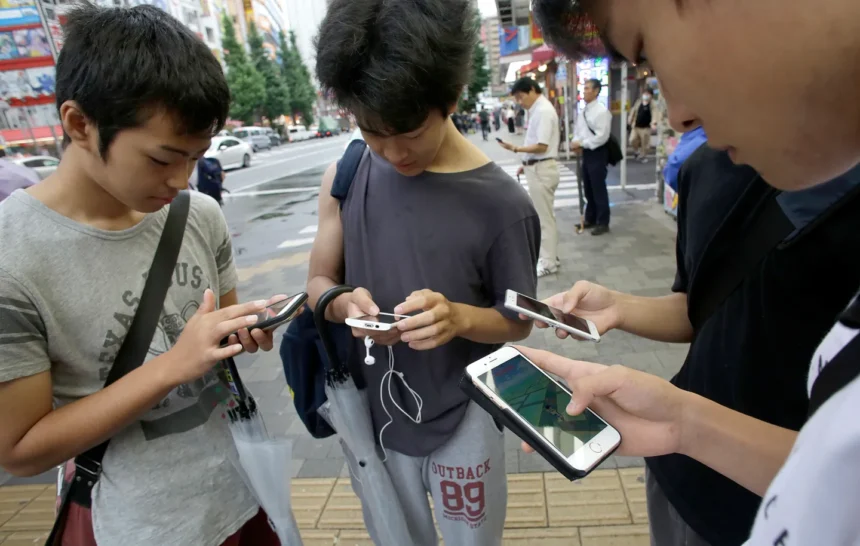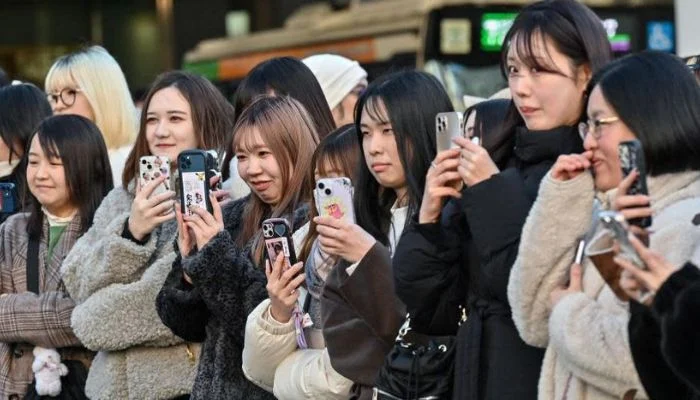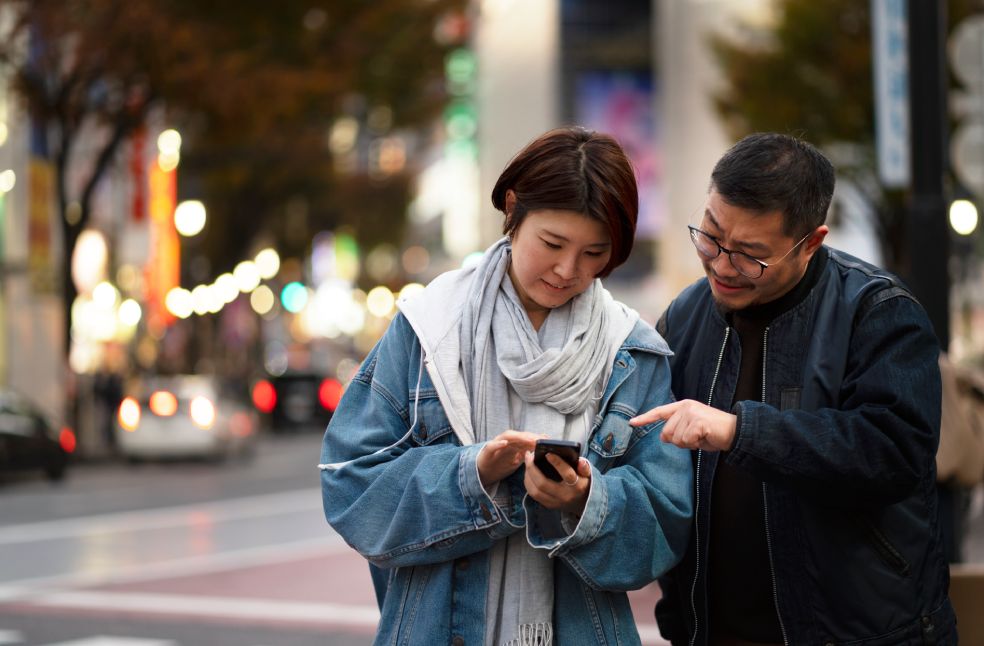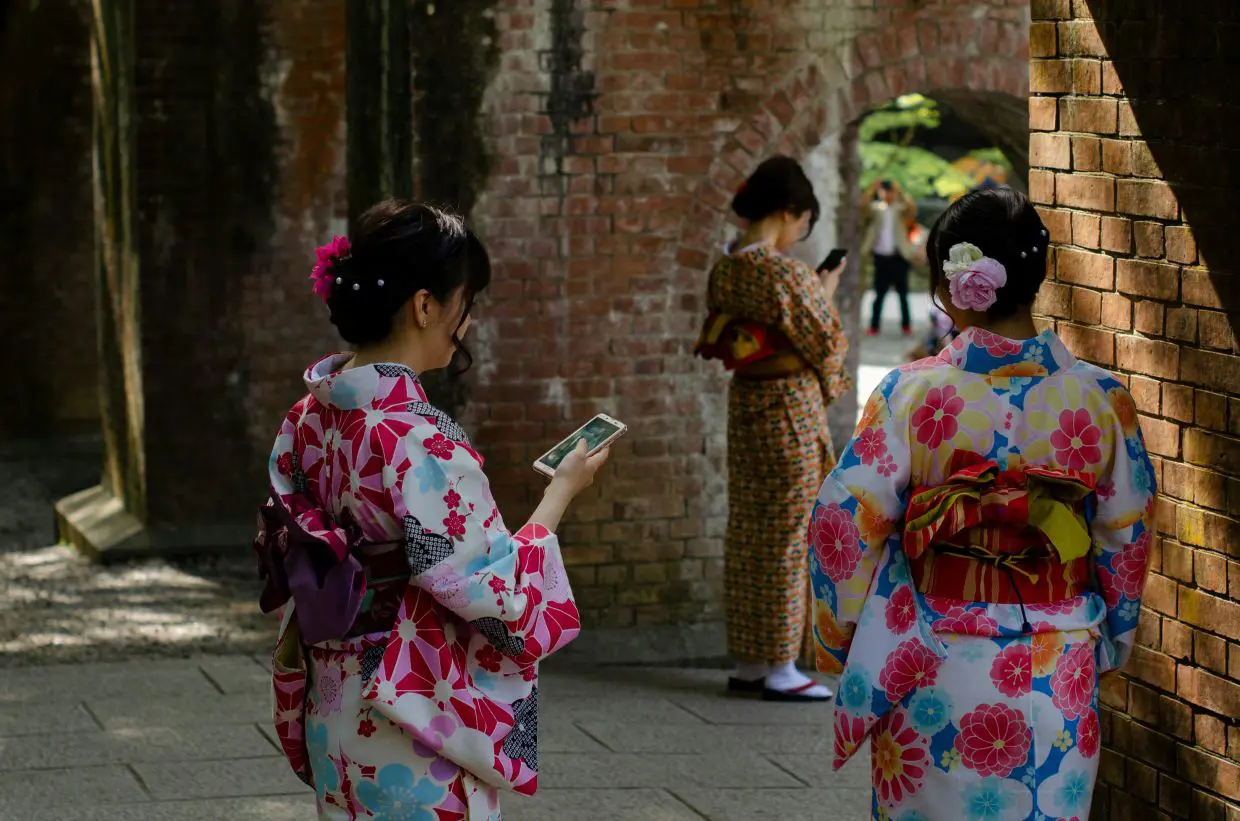TOYOAKE, Japan—Usually calm and routine, life in Toyoake suddenly turned tense this week as the city council passed a sweeping rule limiting smartphone use to two hours daily, starting October 1, 2025.
This rule (the first in Japan to include every age group) requests that families cut device use—phones, tablets, and gaming devices—outside work and school. The rule carries no fines or penalties, just encouragement from the city.
Yet in a country where people rely on their screens every day, the suggestion has sparked heated debate. Locals and people across Japan are now arguing about freedom, well-being, and what these changes mean for modern Japanese life.
Toyoake, a city of 69,000 with quiet streets and frequent cherry blossoms, rarely tries anything new. But on 22 September, city councillors approved the new guideline, which Mayor Masafumi Koki had introduced a month earlier.
“This isn’t about taking away anyone’s rights or adding new rules,” Koki explained, lifting his phone in the council room. “We want people to think about how much time they spend staring at screens, and when.” The city used advice from the Ministry of Health, Labour and Welfare to set the two-hour target.
Japan’s Screen Time Struggle
Experts warn that going beyond it could lead to trouble sleeping. The law suggests primary school children stop using devices by 9 p.m., and teens and adults by 10 p.m. It argues that enough sleep is key to healthy development and highlights concerns around screens reducing quality family time and contributing to truancy.
Japan’s struggle with screen time goes back years. A 2024 survey by the Children and Families Agency showed teens spending close to five hours on their phones every day, with almost two-thirds of 10-year-olds having their own smartphone. Adults, too, seem pulled away from nightly conversations by video clips and social media.
Officials in Toyoake point to research linking long periods on devices with weaker social connections, more anxiety, and physical problems like “text neck.” Similar ideas have been tried before: in 2010, Kagawa Prefecture suggested kids should play video games for only an hour on school nights (90 minutes on holidays), which drew attention elsewhere.
But Toyoake’s rule stands out because it nudges adults to take part as well. “People of all ages battle with device habits,” Mayor Koki said to journalists. “Office workers often miss dinner with family because of endless scrolling.”
Although well-meant, the proposal quickly split opinions. Between 21 and 25 August, the city hall received over 120 comments by phone and email. Most feedback (about 80 percent) was negative, according to the Mainichi Shimbun. One resident called it “an attack on private choices,” questioning how city officials could ever check people’s screen habits at home.
Reaction to the Toyoake Ordinance
Others labelled it unnecessary, doubting any real effect without checks. Online reaction grew loud, especially on X (formerly Twitter), where former senator Shun Otokita criticized the move as “yet another pointless rule.” Otokita argued that smartphones also help kids learn new skills and join online lessons. “Children create with their phones too. Why stop them? This only hurts future potential,” his post read, earning over 1,000 likes.
NPO head Kotaro Ogino suspects the plan goes further. “At first, it looks like it’s about phones,” he posted, “but actually it limits all hobbies and free time based on device use—so much depends on IT now.” His comment was quickly shared, with memes about “Toyoake Time Police” and jokes about sneaking iPads into the house.
Author Osamu Tekina called the decision odd, while local lawmaker Masahide Moroi was uncertain it would achieve anything. “Is there even a point?” Moroi wrote. Some felt the rules were unclear: “Are TV and films excepted? Phones stream both—where’s the logic?” Another user living in Japan added, “I use my phone for two hours just getting to and from work.”
Yet some people support the idea. Local commentator @OhayoMybrother posted the rule online and highlighted that it’s aimed at improving sleep for everyone, not just kids. With over 100 likes, some replies claimed it helps families set their own rules. English teacher @MichaelActivate turned it into a classroom discussion and predicted it might slowly cut screen time.
Toyoake Watches and Waits
On forums such as Japan Today, users remain divided. “Waste of time and budget,” one wrote, while another agreed with the mayor for promoting mindful tech use. On X, @Nutty0413 labelled it great material for discussion, posting vote results from NHK and noting a large majority supported it in council.
As the start date approaches, Toyoake plans to offer parents advice hotlines and run after-hours workshops about spending time together without gadgets. Mayor Koki says he imagines families choosing barbecues instead of streaming shows, and children playing outside instead of on Fortnite.
But critics are quick to compare the plan to short-lived New Year’s resolutions. Meanwhile, others note that similar efforts appear around the world, such as France’s ban on phones in schools or California’s screen-time rules for kids.
In Toyoake’s parks, where old friends once chatted over tea, conversations often move through screens now. The new ordinance does more than set a policy; it reflects Japan’s mixed feelings about its love of technology.
It remains to be seen whether locals will ignore it, accept it, or find humour in it. As one person on X wrote, “Two hours? I’ll just nap.” For now, Toyoake watches and waits, hoping less screen time will lead to something more meaningful.

















